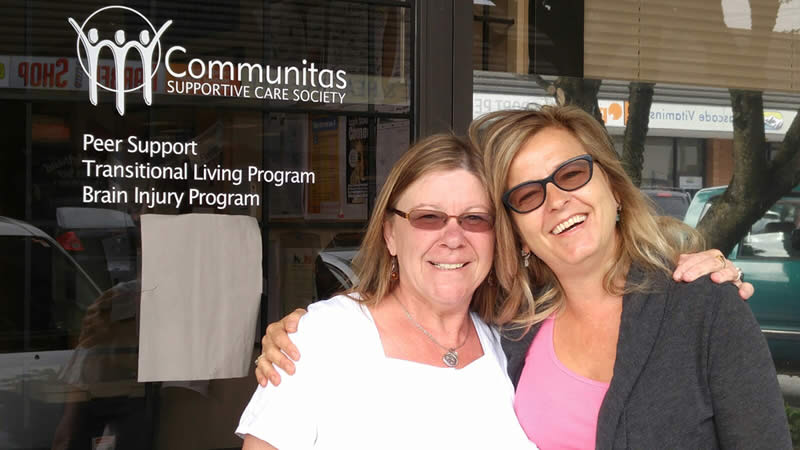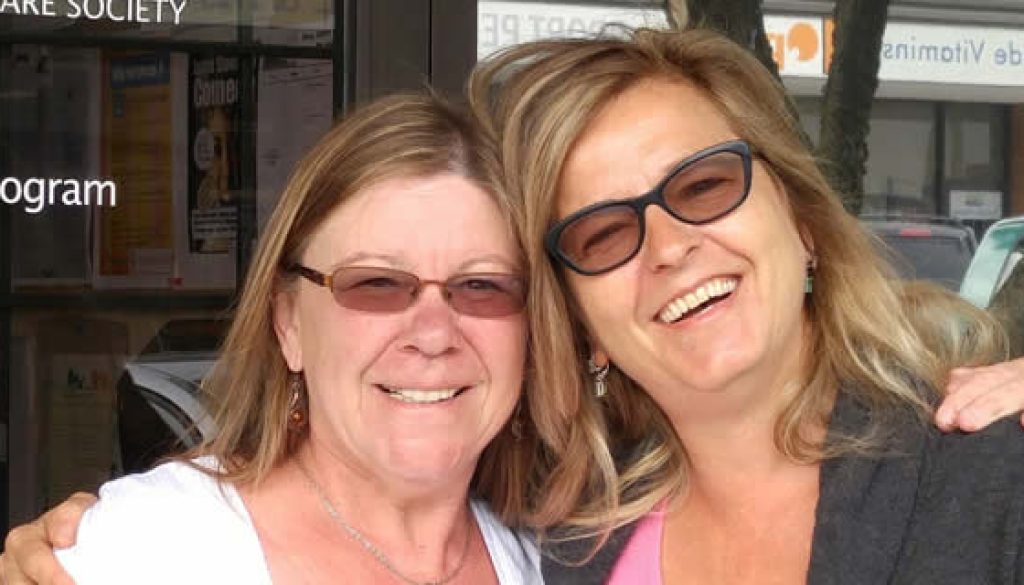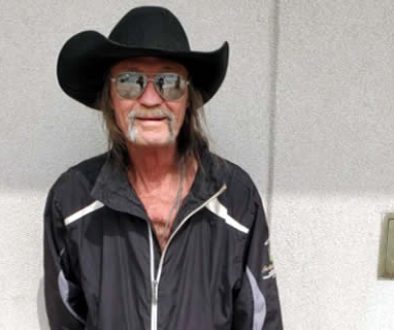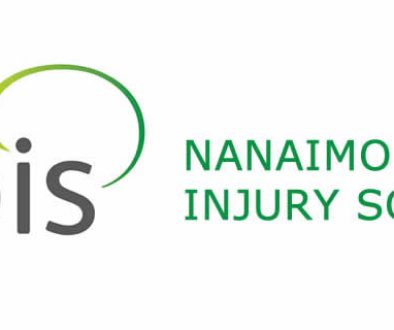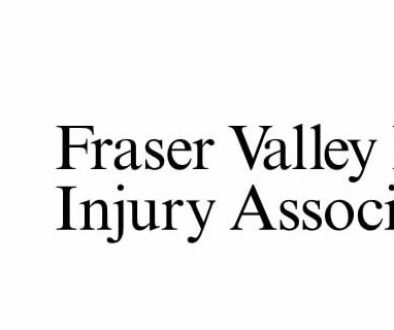Audrey & Vicki’s Story – Changing The Lives Of Others (FVBIA)
One day, your life is heading down one path and the next day that path can completely change direction due to an acquired brain injury.
That day was November 7, 2007 for two phenomenal women who are now changing the lives of others around them.
Vicki Gilberg was a traffic flagger who was looking at investing or buying into the business she worked for in 2007. On the way home from work on November 7, 2007, she rear-ended a bobcat at dusk that had no lights or reflectors at 60 km/hour. She lost consciousness and was taken to hospital by ambulance.
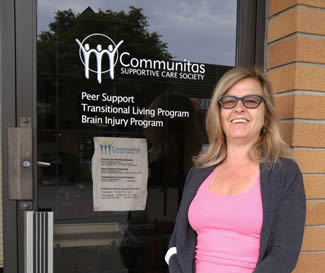
Audrey Danchak also came to the Fraser Valley Brain Injury Association in 2008 with the support of her sister. She had worked in retail and wholesale electrical for 27 years and was managing a lighting store when she suffered a stroke on the same day that Vicki was injured.
One of FVBIA’s popular programs, In the Now, is facilitated by Esther Tremblay, case manager with the Fraser Valley Brain Injury Association and manager of the Chilliwack Brain Injury Centre (operated by Communitas Supportive Care Society on FVBIA’s behalf).
In the Now is one aspect of the Pay it Forward: Healthy Lifestyles for ABI program, partly funded by the Brain Injury Alliance with financial support from the Government of BC.
One focus of the Pay it Forward: Healthy Lifestyles for ABI program is recognizing the strengths and skills you still have after brain injury and using them to support others and your community.
In the Now is a curriculum based support group that focuses on skills that people with brain injuries need to function well in daily life rather than focusing on the past.
“In the Now is my toolshed,” says Vicki. “It gives me the tools I need to get through life. I just need to pick the ones I need”.
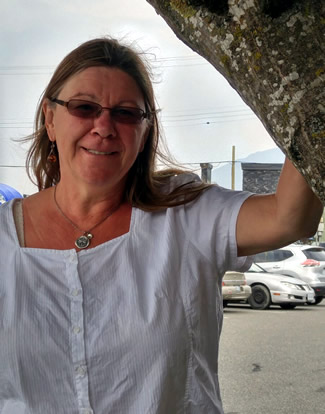
Not only do Vicky and Audrey use the tools from the toolshed that they learn about in the In the Now group, they have taken First Aid and Food Safe classes so they can help with the brain injury drop in program. These classes were sponsored through Brain Injury Alliance funding as well.
These two generously share their skills with others with brain injuries. They come in to the brain injury drop in centre early to help set up, do prep work for meals and clean up afterwards. They welcome new people and give them reassurance that things will be okay.
“I don’t want the younger ones (with brain injuries) to suffer,” says Vicki. “I want them to know that even through I’m broken, I’m okay and it’s going to be okay for them too.”
Audrey echoes that sentiment wholeheartedly! “I feel that if I go to any function where people haven’t experienced what I have, I don’t feel like I belong. Here, it feels like I belong.”
“When I was injured, people didn’t understand me. Here, there is no judgement,” comments Vicki as she reflects back on how strangers and family have responded to her in the past. “Tragedies happen to people. We need to be more loving to each other.”
These two are very loving to others. Not only have they worked hard on their own recovery, they “pay it forward” to others that need support.
When another person with a brain injury was discharged from one residential program to another apartment without any furnishings or household items, Vicki and Audrey rallied with other program members to find donations of furniture, clothing, household items and food to help get him set up.
This is only one of many success stories of how support after brain injury truly changes lives of not only the person who was injured but the lives of those around them.
When asked what made these two successful in her mind, FVBIA case manager Esther Tremblay says the two of them have come so far since they first started coming to programs in 2008.
“They used to cry a lot” and now they welcome new members and support others by helping them get the resources they need. They are both “generous, humble” and working so hard on their personal recovery.
“I like my new life,” says Audrey. “Accepting the new me is key.” These programs have “empowered me … and have given me the strength to excel. Thank you!”
